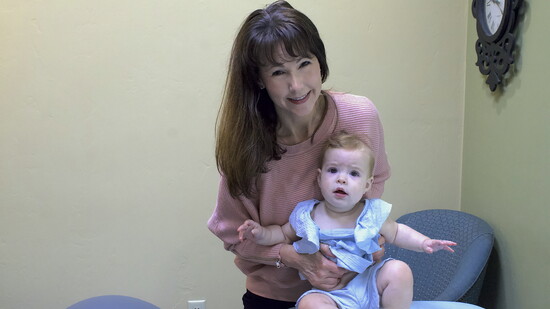Addressing Pelvic Floor Dysfunction in Children
Pelvic floor dysfunction is not exclusive to adults-- it can significantly impact children and infants, affecting their physical and emotional well-being. Conditions like bedwetting, bowel or bladder leakage, constipation, and pelvic pain can erode a child’s confidence, leading to embarrassment and social withdrawal. In babies, digestive issues such as gassiness, fussiness, or constipation cause discomfort, often leaving caregivers feeling helpless. Recognizing and addressing these issues early is vital to improving quality of life.
Identifying Signs & Symptoms
Caregivers may notice abdominal or pelvic pain, delayed potty training, or persistent bedwetting beyond age four. Frequent or urgent urination, straining during urination, or recurrent urinary tract infections may also signal pelvic floor issues. Constipation can present as fewer than three bowel movements weekly, hard or painful stools, fecal smearing, or unusual pooping postures like standing or leg-crossing. In infants, watch for excessive gassiness, fussiness, difficulty burping or passing gas, loud feeding sounds, or fewer than one daily bowel movement or firm stools.
Benefits of Pediatric Pelvic Floor Therapy
Pediatric pelvic therapy targets organ and musculoskeletal dysfunction through tailored techniques to strengthen weak muscles, relieve tightness, and improve coordination. Treatment can include biofeedback, manual therapy, specific exercises, and education on pelvic health. This approach alleviates physical symptoms, boosts self-esteem, and encourages social engagement, empowering children to regain confidence and thrive.
What Therapy Entails
Therapy begins with a review of your child’s medical history and an evaluation of the organs and musculoskeletal system surrounding the abdomen and pelvis, typically with the child fully clothed. For infants, assessments also include intraoral mobility. Sessions are engaging and supportive, often involving collaboration with pediatricians, urologists, or gastroenterologists for comprehensive care. Families receive guidance on home strategies, including bathroom routines, dietary modifications, hydration, and exercise.
Taking the Next Step
If symptoms persist for over two weeks, disrupt daily life, or cause emotional distress, consult your child’s pediatrician to rule out infections or anatomical issues, then seek a pelvic floor therapist for specialized care. Early intervention helps to prevent complications and supports a child’s physical and emotional health. Act promptly to help your child overcome pelvic health challenges and start their journey to recovery.
Note: This editorial is informational and not a substitute for professional medical advice. Consult a healthcare provider for personalized guidance.
